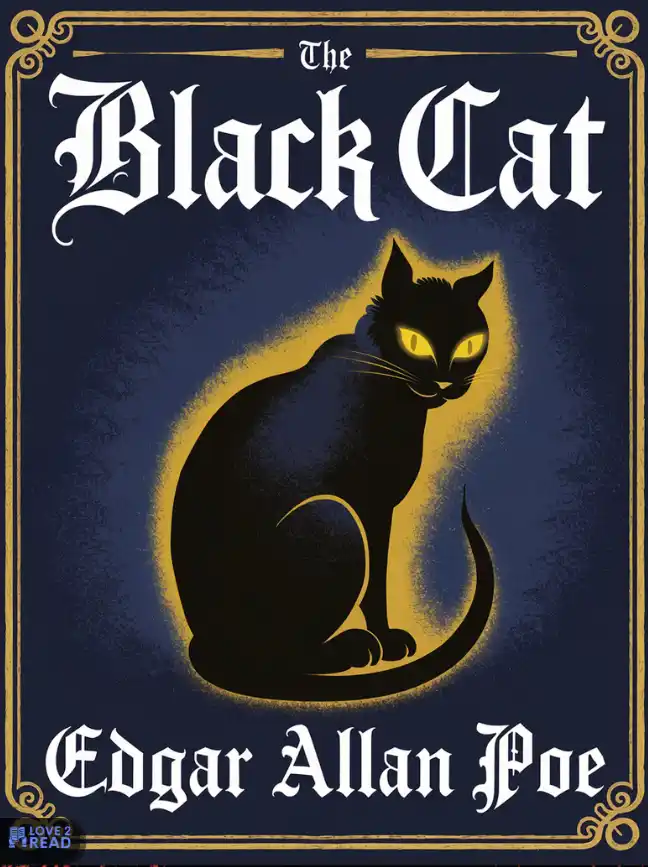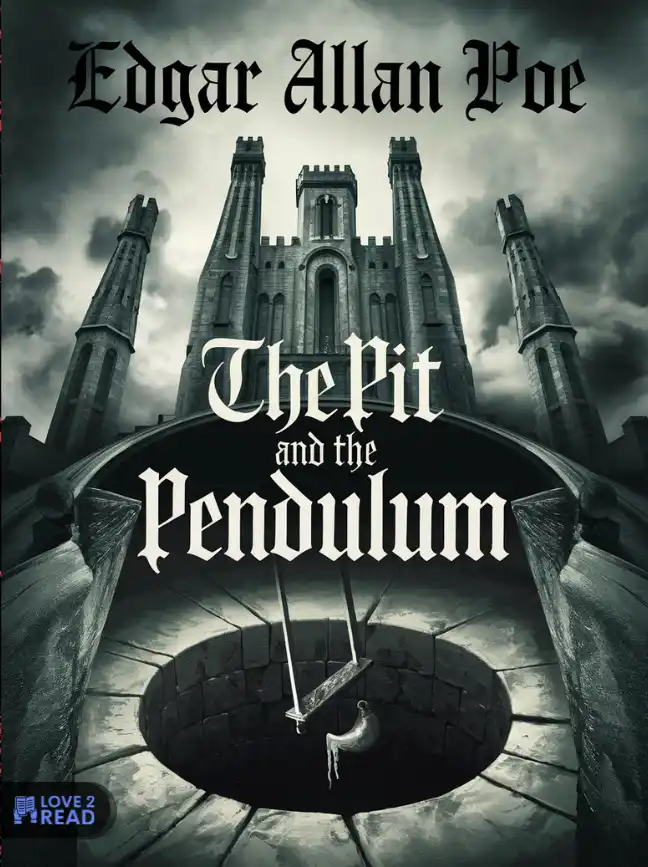(An apartment in the castle.)
THE KING, THE QUEEN, POLONIUS, OPHELIA, ROSENCRANTZ AND GUILDENSTERN enter .
KING.—And you cannot, by turning the conversation, know from him why he shows this disorder, tearing up so cruelly all his days of repose with a turbulent and dangerous madness?
ROSENCRANTZ.—He owns that he himself feels bewildered; but for what reason, he will not at all say.
GUILDENSTERN.—And we find him unwilling to be probed; but with cunning madness he eludes us, when we would bring him to some confession of his true state.
THE QUEEN.—Did he receive you well?
ROSENCRANTZ.—Quite like a gallant man.
GUILDENSTERN.—But with great effort in his manner.
ROSENCRANTZ.—Sparing in words, but only as to our questions; very free in his replies.
THE QUEEN.—Have you provoked him to some pastime?
ROSENCRANTZ.—Madam, it just so happened that we met some actors on our way; we spoke to him of them, and we thought we saw in him a kind of joy at hearing this news. They are somewhere in the palace; and, as I understand it, they have already orders to play before him this evening.
POLONIUS.—That is very true, and he begged me to induce your Majesties to hear and see this matter.
THE KING.—With all my heart, and I am very glad to learn that he is inclined to this. My dear gentlemen, sharpen this taste in him still further, and push his plans further towards such pleasures.
ROSENCRANTZ.—So shall we do, my lord.
(Rosencrantz and Guildenstern exit.)
KING.—Sweet Gertrude, leave us also; for we have, uncovered, sent Hamlet hither, that he may, as if by chance, meet Ophelia. His father and I, blameless spies, will place ourselves so that, seeing and not being seen, we may judge with certainty of their meeting, and conclude from himself, according to his conduct, whether it is the reversal of his love, or not, that makes him thus suffer.
QUEEN.—I will obey you. And as for you, Ophelia, I wish your rare beauties Be the happy cause of Hamlet’s error; for I may thus hope that your virtues, to the great honour of us both, Will set him right again.
OPHELIA.—Madam, I wish it could be.
(The queen exits.)
POLONIUS.—Ophelia, walk here…. Gracious master, if you please, we will go and place ourselves. ( To Ophelia . ) Read in this book; this appearance of such an occupation may color your solitude…. We are often blameworthy in this…. the thing is but too well demonstrated…. with the face of devotion and a pious gait, we make the devil himself white and sweet as sugar, from head to foot.
THE KING ( aside ).—Oh! that is too true! With what a stinging thong this language whips my conscience! The cheek of the prostitute, skillfully plastered with a false beauty, is no uglier under the material with which she helps herself, than my action is under my painted and repainted words! O heavy burden!
POLONIUS.—I hear him coming, let us retire, my lord. (The king and Polonius exit.) (Hamlet enters.)
HAMLET.—To be or not to be, that is the question…. Which is nobler for the soul? To bear the slings and the shafts of outrageous fortune? Or to arm in war against a sea of miseries, and with a hard fight cut it short?… To die…. to sleep…. nothing…. and to think that by sleep we put an end to the pangs of heart and those thousand natural attacks that are the heritage of the flesh! This is an outcome to be fervently desired. To die…. to sleep…. to sleep! to dream perhaps? Ah! there is the reef; for in this sleep of death, what may come to us of dreams, when we are removed from all this human tumult, must stop us. This is the reflection that brings us this calamity of so long a life! For who would bear the scourgings and humiliations of the present, the injustice of the oppressor, the affront of the proud man, the anguish of despised love, the delays of justice, the insolence of power, and the violence that patient merit suffers at the hands of the unworthy?—when he himself could give his dismissal with a simple dagger!—Who would want to carry this burden, to groan and sweat under an oppressive life, were it not that the fear of something after death, the undiscovered country whose border is not crossed by any traveler, embarrasses the will and makes us bear the ills we have, rather than flee to those we do not know? Thus conscience makes so many cowards of us; so the native color of resolution is all paled by the pale reflection of thought, and this or that enterprise of great impulse and scope, at this sight, turns from its course and fails to deserve the name of action…. Softly, now! Here is the beautiful Ophelia. Nymph, in your prayers, may all my sins be remembered!
OPHELIA.—My good lord, how is your worship these days?
HAMLET.—I thank you humbly. Well, well, well.
OPHELIA. My lord, I have remembrances of you which I have long longed to return; I pray you, receive them now.
HAMLET.—No, it is not I; I never gave you anything.
OPHELIA. My honoured lord, you know well that it is; and even with these gifts went words of such sweet breath that they made things more precious; their fragrance is lost, take them back; for to a noble soul, the richest benefit becomes poor when the benefactor shows malice. Here they are, my lord.
HAMLET.—Ah! ah! are you honest?
OPHELIA.—My lord?
HAMLET.—Are you fair?
OPHELIA.—What does your lordship mean?
HAMLET.—That if you are honest and fair, you must take care that your beauty has no commerce with your honesty.
OPHELIA.—But can beauty, my lord, be in better company than with honesty?
HAMLET.—Yes, indeed; for the power of beauty will sooner transform honesty from what she is into a dirty matchmaker than the strength of honesty will transfigure beauty into her own image. This was, some time ago, a paradox, but the present time proves it. I loved you once.
OPHELIA.—Truly, my lord, you made me believe it.
HAMLET.—You should not have believed me; for though virtue graft our old stock, we shall still feel ourselves of black descent. I did not love you.
OPHELIA.—I was only the more disappointed.
HAMLET. Go to a cloister. Why would you make yourself a mother and nurse to sinners? I am myself tolerably honest, and yet I could accuse myself of such things as were better my mother had not borne me; I am very proud, vindictive, ambitious; I have more sins in train around me than I have thoughts to lodge them in, imagination to shape them, or time to commit them. What have such people as I to do to loiter between earth and heaven?13 ? We are all complete rogues, don’t believe any of us. Go straight to a cloister. Where is your father?
Note 13: (return) A meeting of Hamlet and René in the same feeling of sadness and the same quick image, a resemblance of familiar boldness in expression, between Shakespeare and Chateaubriand, is it not a completely natural fact and like a chance that one should foresee? Thus M. de Chateaubriand, a few years before his death (August 10, 1840), wrote to Madame Récamier: “If it were not your beautiful and dear person, I would be sorry to have dragged myself out so long under the sun.” ( Souvenirs de Madame Récamier , volume II, p. 499.)
OPHELIA.—Home, my lord.
HAMLET.—Shut the door on him, that he may not play the part of a fool anywhere but in his own house. Farewell!
OPHELIA.—Oh! help him, merciful heavens!
HAMLET.—If thou wed, I’ll give thee this curse for dowry; be as chaste as ice, as pure as snow, thou shalt not escape calumny. Go to a cloister; farewell! Or if thou wilt at all marry, marry a fool; for wise men know well what monsters you make of them. To the cloister, go, and quickly! Farewell.
OPHELIA.—O heavenly powers, heal him!
HAMLET.—I have heard of your paintings too, to my satisfaction. God gave you one face, and you make yourselves another. You dance, you trot, you whisper, you unbaptize God’s creatures, and put your frivolity on your ignorance. Go, I will have no more of this; it made me mad. I tell you, we will have no more marriages; those that are married already shall live thus, all but one; the rest shall remain as they are. To the cloister! Go.
(Hamlet exits.)
OPHELIA.—Oh! what a noble mind is there in ruins! Courtier, soldier, scholar, the eye, the tongue, the sword! The expectation and flower of this fair realm, the mirror of fashion and the mold of good forms, the only watched of all watchers, utterly, utterly down! And I, of all women the most oppressed and miserable, I who have sucked the honey of her melodious vows, now see that noble and altogether sovereign reason, as the sweetest bells when cracked, give false and harsh sounds! that matchless form and features of blooming youth withered with such transports! Oh! woe is on me! To have seen what I have seen and to see what I see!
(The king and Polonius return.)
THE KING.—Love? No, his affections do not follow that road; and what he said, though somewhat lacking in consistency, did not resemble madness. There is something in his soul over which his melancholy has settled to incubate, and I strongly suspect that the hatching and the product will be some danger. To prevent it, I have just, by a lively resolution, arranged everything thus: he will leave in haste for England, and will go to claim our neglected tributes. Perhaps the seas, the difference of countries and the variety of objects, will be able to drive away that I know not what which is the fixed idea of his heart and with which his brain continually clashes, thus throwing him out of the use of himself. What do you think?
POLONIUS.—That will do well; but still I believe the origin and beginning of his grief is in ill-treated love.—Well! Ophelia, you need not tell us what Lord Hamlet hath said; we have heard all.—My lord, do as you please; but if you please, let the queen his mother, after the performance, alone with him, press him to unfold his grief. Let her treat him roundly; and I, if it be your pleasure, will stand in the wind of all their conversation. If she do not penetrate him, send him to England, or confine him to what place your wisdom shall think best.
KING.—That we will do; the folly of a man of high rank cannot remain unguarded.
(They go out.)





